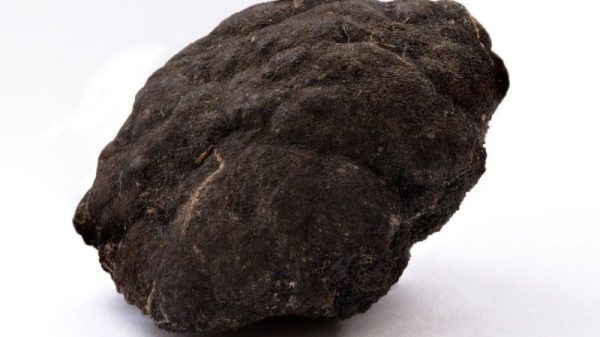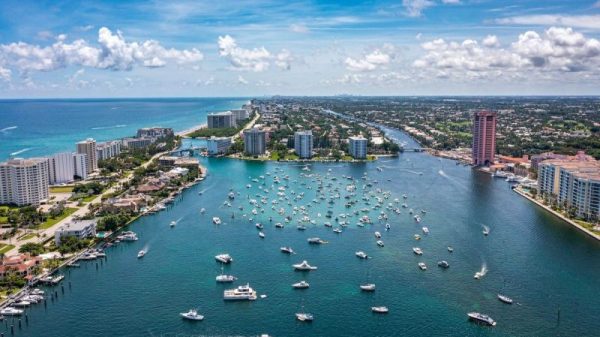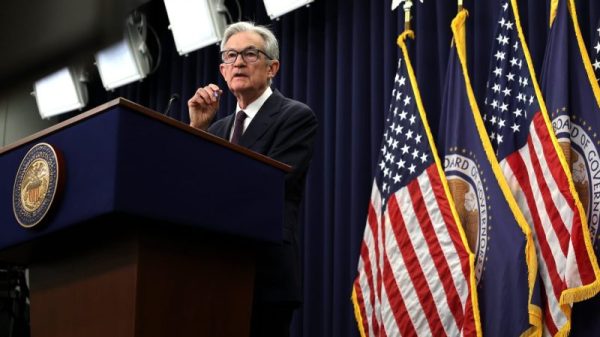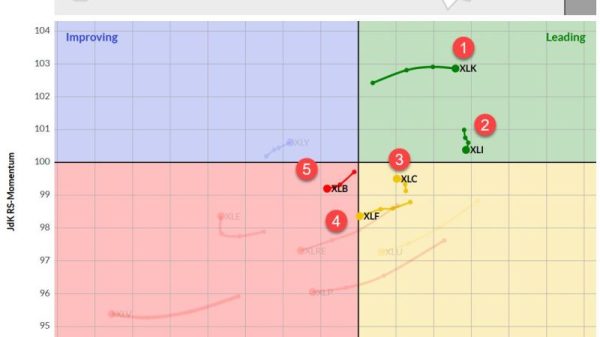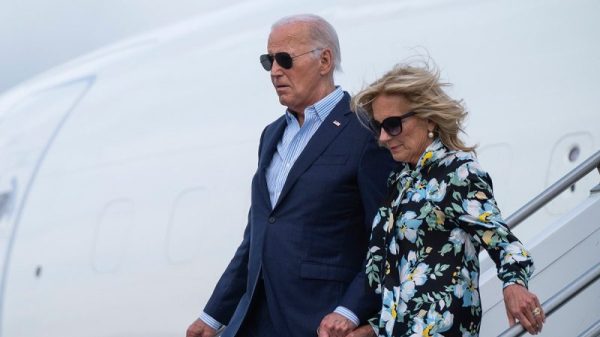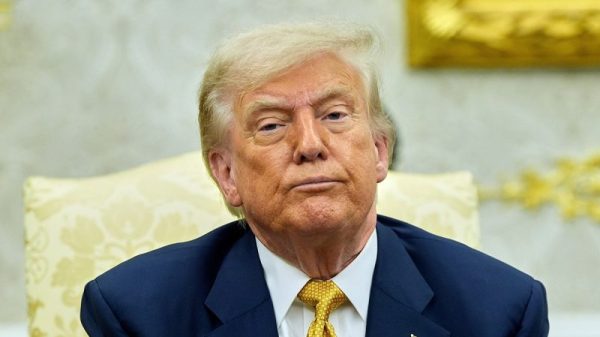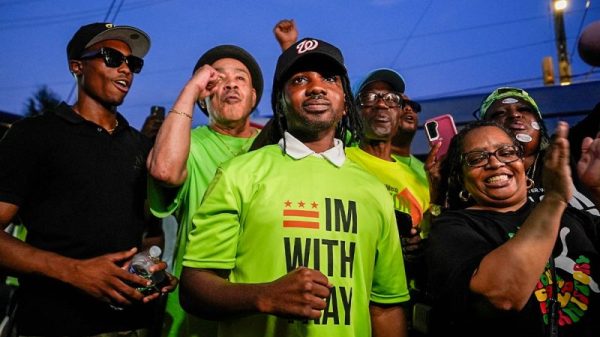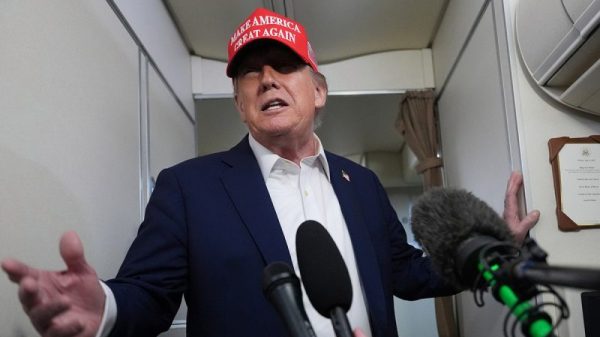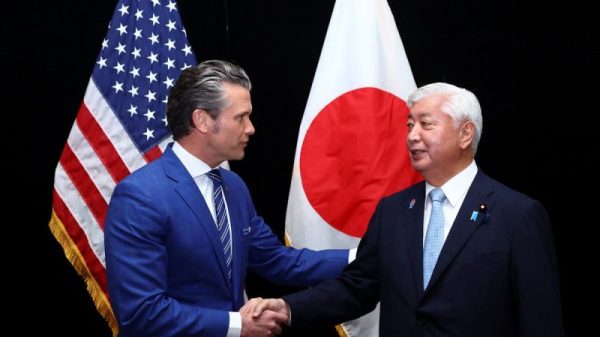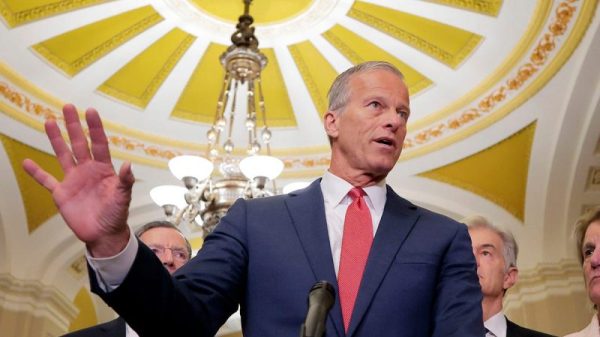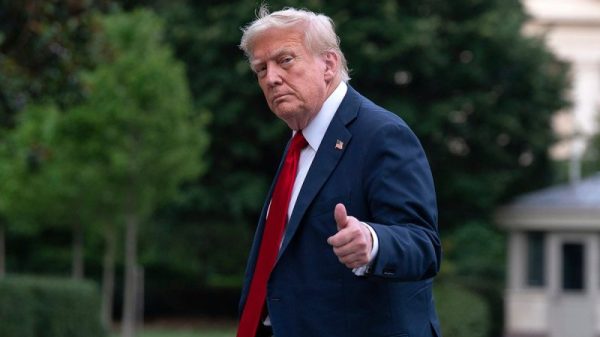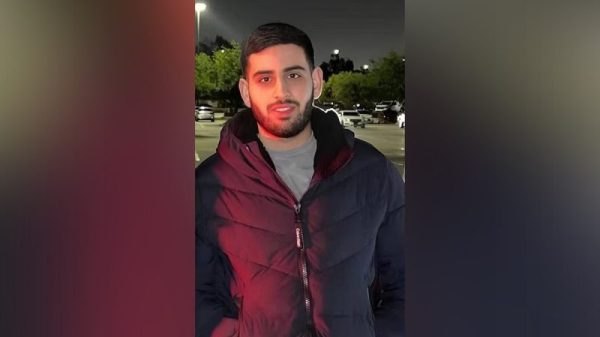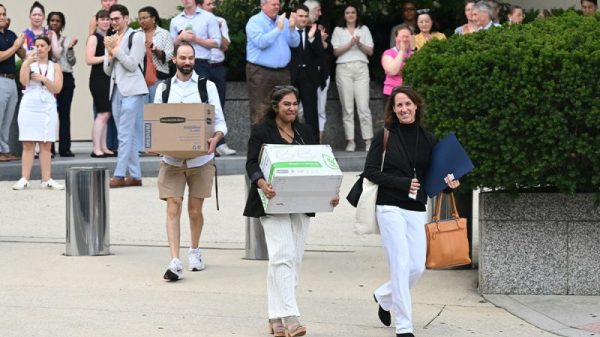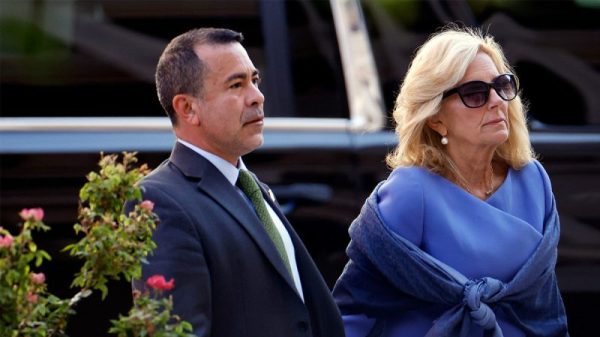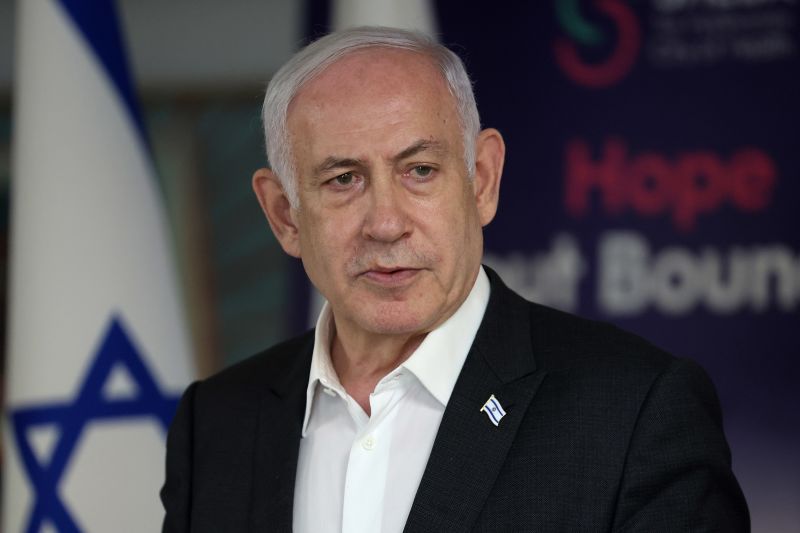Israeli Prime Minister Benjamin Netanyahu said Sunday that the “intense phase of the war with Hamas (in Gaza) is about to end,” and that the military’s focus could then shift to Israel’s northern border with Lebanon, where fighting with the Iran-backed group Hezbollah has intensified in recent weeks.
Netanyahu, however, vowed that Israel would continue operating in Gaza until the militant group Hamas was eliminated.
“It doesn’t mean that the war is going to end, but the war in its current stage is going to end in Rafah. This is true. We will continue mowing the grass later,” Netanyahu told Channel 14 Television in his first one-on-one interview with local Israeli media since October 7.
More than a million Palestinians were taking shelter in Rafah before Israel started its air and ground operation in the southern Gazan city, defying calls from the international community not to proceed. Around 800,000 people have since been displaced from Rafah, where conditions have been described by the United Nations food agency as “apocalyptic.”
The city’s border crossing with Egypt — a vital entry point for humanitarian aid — has remained closed since the Israeli military seized it early last month.
And international pressure on Israel’s actions in Gaza have mounted since it started its operation in Rafah. Last month, the UN’s top court ordered Israel to immediately halt its controversial military operation there, calling the humanitarian situation “disastrous.”
In his interview, Netanyahu said that he is ready to make “a partial deal” with Hamas to return some hostages still being held captive in Gaza, but he reiterated his position that the war will still continue after a ceasefire “to achieve the goal of eliminating” Hamas.
“I’m not ready to give that up,” Netanyahu said.
The prime minister has faced nationwide protests in Israel calling for a ceasefire in Gaza and the return of all hostages. On Saturday, families of the hostages took part in the ongoing anti-government protests, including in Tel Aviv, Jerusalem, Herzliya, Caesarea, Raanana, Be’er Sheva, Kiryat Gat and the town of Pardes Hanna-Karkur. Many protesters demanded the government accept the hostage release deal.
A US-backed three-phase ceasefire plan proposes “a permanent end to hostilities, in exchange for the release of all other hostages still in Gaza, and a full withdrawal of Israeli forces from Gaza.”
Cracks also appear to be deepening between the Israeli government and its military. Netanyahu has come under increasing pressure from members of his government and Israel’s allies, including the United States, to devise a strategy for the post-war governance of Gaza after Israel’s devastating bombardment of the isolated enclave.
In response to the prime minister’s comments, Hamas said the words used by Netanyahu show that he is only looking for a partial agreement and not an end to the war in Gaza.
Netanyahu’s positions are “a clear confirmation of his rejection of the recent Security Council resolution, and the proposals of US President Joe Biden,” Hamas said in a statement.
Hamas continues to insist that any agreement include, “a clear affirmation of a permanent ceasefire and a complete withdrawal from the Gaza Strip.”
In Israel, the Hostages Families Forum Headquarters condemned any suggestion of a withdrawal without securing the return of all hostages. “The end of the fighting in the Gaza Strip, without the release of the hostages, is an unprecedented national failure and a failure to meet the goals of the war,” the Forum said in a statement on Monday.
Shifting north
Netanyahu also told Channel 14 Television that “after the end of the intense phase, we will have the possibility to shift some of the power north, and we will do it.”
“First of all, for protection purposes, and secondly, to bring our residents home as well. If we can do it politically, that would be great. If not, we will do it in another way, but we will bring everyone back home – all the residents of the north and the south,” he added.
Hezbollah, an Iran-backed Islamist movement with one of the most powerful paramilitary forces in the Middle East, has been carrying out deadly attacks from southern Lebanon targeting areas in northern Israel since October 8, the day after the Hamas attacks on Israel.
Israel has responded to Hezbollah’s attacks with strikes that have killed Hezbollah militants, among them senior commanders.
Tens of thousands of Israelis have been evacuated from their homes in northern Israel due to ongoing conflict. Villages across southern Lebanon have also emptied.
The increase in cross-border attacks in recent weeks has intensified concerns about the possible outbreak of another full-fledged conflict in the Middle East.
US officials have serious concerns that in the event of a full-blown war between Israel and Hezbollah, as the Iran-backed militant group could overwhelm Israel’s air defenses in the north — including the much-vaunted Iron Dome air defense system.
Netanyahu was also asked in the interview if his solution to ending the conflict with Hezbollah was via agreement or war.
The prime minister responded, “Look, if there is an agreement, it will be an agreement according to our terms. Our terms are not ending the war, leaving Gaza, and leaving Hamas intact. I refuse to leave Hamas intact. We need to eliminate them.”
Israel launched its war in Gaza following the Hamas attacks of October 7, when militants killed about 1,200 people and took more than 250 hostages. Since then, the Israeli campaign has killed more than 37,000 people, according to the ministry of health in Gaza.
This breaking news story has been updated.



